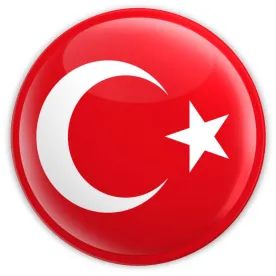On December 22, 2016, Turkey adopted a new IP Code of Property no. 6769 (IP Code), which repeals and replaces the Decree Laws on Patents and Utility Models, on Trademark and Service Marks, on Industrial Designs, and on Geographical Indications (Decree Law). The new IP Code went into effect on January 10, 2017. In this multi-part series, we will address how this new law changes the IP landscape in Turkey. The first part of the series will focus on changes to the codes regarding Patents and Utility Models.
Post Grant Opposition
Previously, the only way to contest a patent under Turkish Patent Code was to file a cancellation action before the courts. However, under the new IP Code, third party oppositions against granted patents are now possible. Specifically, the opposition must be filed within six months of the publication of a grant decision. Once filed, the patentee is notified of the opposition by the Turkish Patent and Trademark Institute (TPTI), and invited to submit an opinion regarding the opposition or amend its patent (namely, the claims and/or specification). Although the examination board is yet to be established, the board will serve to examine the opposition and patentee’s opinion and amendments, and ultimately decide whether to invalidate the patent or refuse the opposition. The IP Code and the draft of the Regulation on the Implementation of the IP Code, do not stipulate any oral hearing for the opposition proceedings. Third parties may oppose a patent on the grounds that the:
-
Subject matter of the invention is not novel / does not involve inventive step / is not susceptible of industrial application;
-
Subject matter of invention is excluded from patentability;
-
Invention is not disclosed sufficiently clear and complete;
-
Invention contains subject-matter which extends beyond the content of the application as filed- the subject-matter of the patent is not patentable;
-
Invention is not disclosed in a manner sufficiently clear and complete for it to be carried out by a person skilled in the art; and
-
Subject-matter of the patent extends beyond the content of the application as filed.
The examination board will examine the opposition, observations and amendments of the patentee and issue a decision on the revocation/amendment of the patent.
Biotech Patents and Subject Matter Eligible
The provision of the IP Code relating to patentable inventions defines the types of inventions which are not patentable. Specifically, the discovery of any elements of the human body and the human body itself in its natural environment are not patentable. For example, claims directed to human gene sequences or process for cloning a human being will be rejected as being directed to non-patentable subject matter. Unfortunately, claims directed to proteins and antibodies are not specifically addressed. With respect to diagnostic methods, these methods are considered to be non-patentable subject matter in accordance with the European Patent Convention (EPC).
Second Medical Use Patents
The Turkish Supreme Court overruled a 2014 Istanbul IP Court decision which held that the second medical use claims granted by the European Patent Office (EPO) under the European Patent Convention (EPC) 1973 were null and void. The Supreme Court further emphasized that Turkish law does not exclude second medical use inventions from patentability, and acknowledges the protection of second medical use patents validated through the EPC. Unfortunately, the new IP Code is silent with respect to the patentability of second (and further) medical indications of a per se already known substance or composition (second medical use inventions).
Swiss-type claims are not allowable before the EPO for an EP patent application having a filing date or an earliest priority date after 29 January 2011 (G 2/08). However, in practice, the TPTI accepts any type of claims via validation through the EP route without conducting any further examination. Therefore, for effective protection of second medical use patents, it is recommended that applicants proceed through EP validation in Turkey.
Abolition of the Seven-Year Patent System
Under the previous Turkish patent law, a seven year short-term patent could be obtained without an applicant’s having proceeded through substantive examination. The new IP Code mandates that all applicants request substantive examination of their applications. Failure to do so will result in the application being considered to be withdrawn. It is expect that this change will improve the quality of patents and to provide an overall stronger patent framework, particularly for small and medium sized enterprises.
The new IP Code applies to international and national patent applications filed after the enactment of the new IP Code. What this means is that international and national patent applications filed before the enactment of the IP Code will be treated according to the provisions of the Decree Law. It is important to note that should a patentee of a seven year short-term patent wish to convert to a twenty year long term patent through a request of substantive examination, such request will be treated in accordance with the Code in force at the date of the filing of the request.
Utility Model System Re-Adapted
A novelty search will now be required for utility model applications and applicants will have the opportunity to file amendments during the registration proceedings. Although post grant oppositions may be filed against patents, post grant oppositions will not be allowed for utility models. Moreover, the new IP Code stipulates that no utility model certificate will be granted for:
-
Biotechnological inventions;
-
Chemical processes or products, or any products or processes obtained therefrom; and
-
Pharmaceutical processes or products, or any products or processes obtained therefrom.
Employee Inventions System for Universities
Under the new IP Code, any inventions made by scientific staff (including Ph.D. students and non-Ph.D. students) as part of their university employment, belong to the university under certain conditions. This new requirement removes the previous “professor’s privilege”, provided under the Decree Law that provided that researchers and academicians working at universities could automatically own the invention subject to the patent. The new IP Code also states that at least 1/3 of the income generating from use of the patent will belong to the inventor researcher/academician.
Compulsory Licensing
The new IP Code provides new grounds for the granting compulsory licenses. Specifically, the patentee can be requested to grant a compulsory license if the patentee breaches competition such as to block, restrict or destruct the competition in the market. The patentee may also be asked to grant a compulsory license if the use of the patent does not meet the local market needs of the country.
Burden of Proof in Process Patents
Under the previous law, the burden of proof in process patent infringement cases was provided in two Articles. Specifically, the first article, Article 84 of the Decree Law No. 551 stated that where a process patent claimed the manufacture of new products or substances, unless there was proof to the contrary, any product or substance having the same properties (as the product produced by the patented process) were automatically deemed to have been obtained using patented process. Under this situation, the burden of proof was with the person claiming the contrary.
The second article, Article 136, provided that where a process patent claimed the production/preparation of a product, all products possessing the same properties (as the products produced by the patented process) were deemed to have been manufactured by the patented process. A defendant claiming that it manufactured/produced the product without infringing the patented process had the burden of proof.
In the new IP Code, Article 141/2 states that where a process patent claims the production/preparation of a product or a substance, the court may request that the defendant prove that its product (having the same properties as the product produced by the claimed process) has been produced/manufactured without infringing the patented process. Where the patent claims a process for the production/preparation of a new product or substance, all products possessing the same properties as the product produced by the patented process, will be considered to have been produced/manufactured by the patented process. A defendant claiming that it manufactured/produced a product without infringing a patented process will have the burden of proof.
Kate Merath of Michael Best and Okan Can of Deris also contributed to this article.




 />i
/>i

